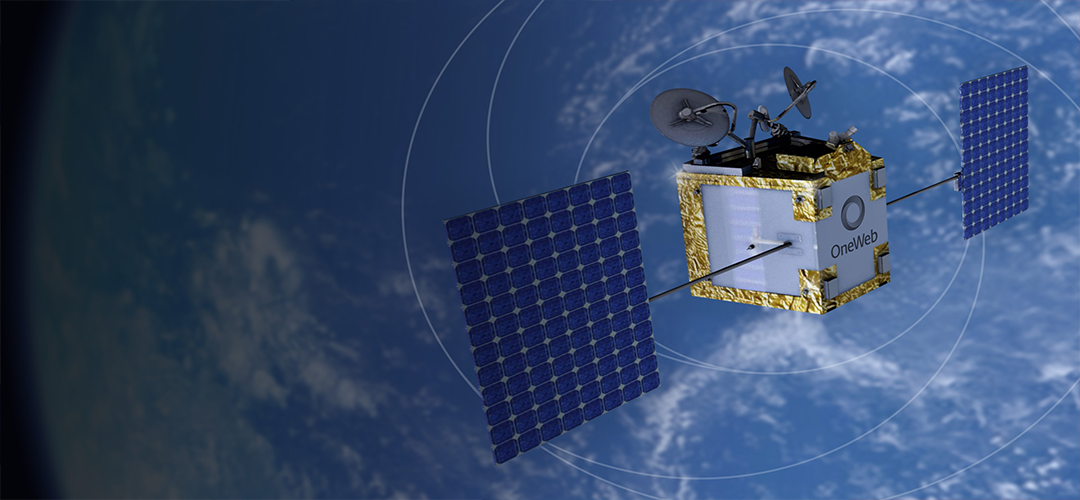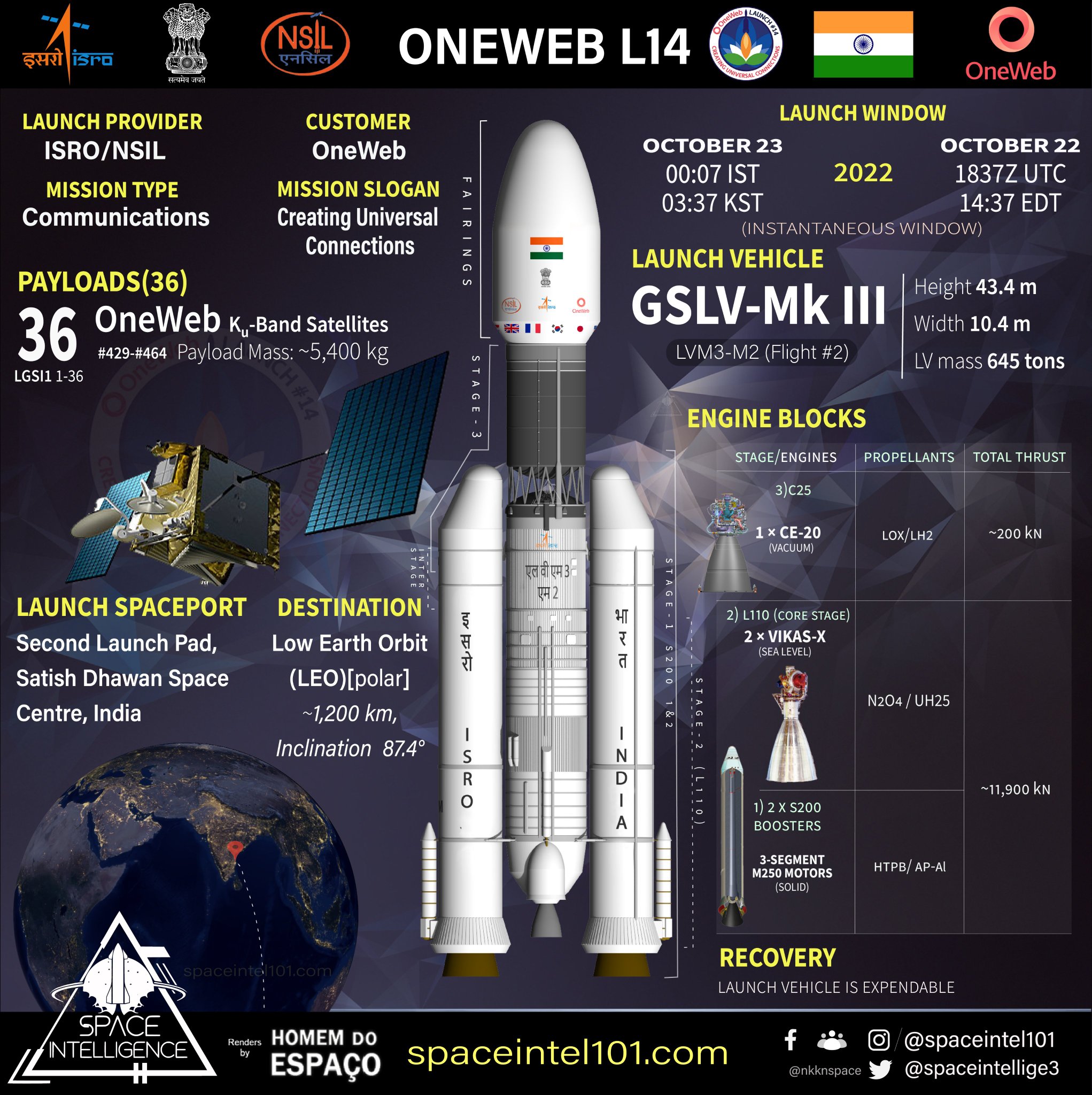ENTERING THE SPACE INTERNET MARKET
October 22, 2022 | Expert Insights

Elon Musk's Starlink has proven the efficacy of satellite-beamed broadband in war-torn Ukraine. It has clearly demonstrated how space-based internet can provide broadband access to millions living in remote backward areas without high-speed internet and even in combat zones. Of course, the technology is relatively expensive now, but with the economy of scale and cheaper technological innovations, it will become much more affordable, just like cellular telephony.
Collaborating with Network Access Associated Limited (M/s OneWeb) of the United Kingdom, the Indian Space Research Organization’s (ISRO) commercial wing, NewSpace India Limited (NSIL), will soon launch OneWeb LEO Broadband Communication Satellites on the ISRO's most powerful rocket, LVM3, creating a constellation of satellites that will cover the Indian subcontinent and the rest of the globe.
Background
The OneWeb is an initial 648-satellite internet constellation scheduled for completion in 2022, with universal broadband internet services to commence by the end of 2023. OneWeb, a company with its headquarters in London and offices in California, Florida, Virginia, Dubai, and Singapore, is deploying the constellation.
The first six satellites of OneWeb were sent into orbit in February 2019; the first noteworthy batch of 34 satellites was launched in February 2020, and the final 34 satellites were launched in March 2020. More launches followed in 2021. A joint venture between Airbus and OneWeb, OneWeb Satellites, produced the miniature satellites. The satellites operate in the Ku-band of the radio frequency spectrum and are in a circular low Earth orbit at the height of around 1,200 km (750 mi).
Due to financial difficulties brought on by the COVID-19 pandemic, OneWeb filed for Chapter 11 bankruptcy protection in late March 2020 after securing its global satellite spectrum and orbital rights with the International Telecommunication Union (ITU), launching 74 satellites. However, OneWeb kept the satellite operations center operational for the satellites already in orbit while the court decided how to divide the company's assets. In November 2020, the business emerged from bankruptcy after being purchased by the UK government and Bharti Global for $ 1 billion. Bharti now owns 38.6 per cent of the company.

Analysis
OneWeb's broadband constellation, consisting of 36 satellites, is now undergoing final preparations for launch by ISRO on the Geosynchronous Satellite Launch Vehicle (GSLV) Mk-III. ISRO has renamed the launch vehicle LVM-3. The client payloads will be deployed in Low Earth Orbit on October 23 at 12:07 am from the Satish Dhawan Space Centre in Sriharikota aboard the LVM-3.
This is LVM3's first specifically designed commercial launch, carried out on demand by NewSpace India Limited (NSIL) but the second flight overall. Previously, on July 22, 2019, it delivered India's second lunar mission, Chandrayaan-2, into its planned orbit. The rocket will not launch satellites into geosynchronous orbit, which is the only reason the vehicle's name was changed from GSLV to LVM. The OneWeb satellites are in Low Earth Orbit (LEO), 1,200 kilometers above the Earth.
Neil Masterson, the CEO of OneWeb, claims that the project will have a “significantly lower entry cost of any LEO” broadband constellation. As per him, just ten more launches are required to make the system go online, delivering global coverage.
Assessment
- Undoubtedly, OneWeb will be a game changer in reducing internet inequity in India. If priced right, it could connect towns, villages, and local and regional municipalities in the hardest-to-reach areas, thus playing a critical role in bridging the digital divide across India. Pricewise, India is a most discerning market, as many multinational corporations have realized their grief, and we must await the commercial launch of the enterprise.
- For cash-hungry ISRO, launching low-earth orbit satellites is a very lucrative opportunity as it has huge potential. A plethora of companies are venturing into the space-based internet business, and there is a growing demand for affordable launch vehicles.








Comments